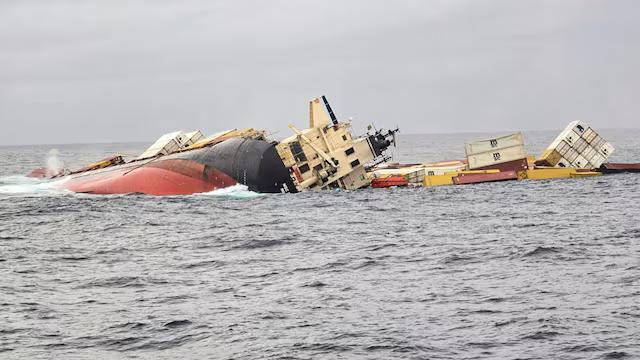
Scientists go on 10-day research cruise to assess damage after vessel sank off Kochi
In a bid to assess the damage to marine life and fisheries, a team of scientists has embarked on a 10-day research cruise to investigate the aftermath of a Liberian-flagged vessel that sank off the Kochi coast last month. The vessel, which was carrying hazardous chemicals, had been lying on the seafloor since its tragic demise, and the scientists aim to use advanced technologies to inspect the structural damage and oil leaks.
The research cruise, which will conclude on June 12, is a collaborative effort between the Ministry of Earth Sciences and a team of scientists from various institutions. The project is designed to gather crucial data on the impact of the shipwreck on the marine ecosystem and to develop strategies for mitigating the effects of such incidents in the future.
According to the scientists, the research cruise will employ a range of cutting-edge technologies to assess the damage caused by the shipwreck. These include underwater cameras, which will be used to inspect the structural damage and oil leaks, as well as remote-operated vehicles (ROVs) that will be deployed to collect samples of water and sediment from the affected area.
One of the primary goals of the research cruise is to assess the extent of oil pollution caused by the shipwreck. The vessel was carrying hazardous chemicals, including oil and chemicals, which have the potential to contaminate the marine environment and harm marine life. The scientists will use specialized equipment to detect and quantify the amount of oil and chemicals that have leaked from the shipwreck.
In addition to assessing the impact of the shipwreck on marine life, the research cruise will also focus on the effects of the incident on fisheries. The fisheries industry is a vital component of the Indian economy, and the shipwreck has the potential to disrupt the delicate balance of the marine ecosystem and impact the livelihoods of fishermen and fishing communities.
The research cruise is also expected to provide valuable insights into the impact of shipwrecks on the Arabian Sea, which is a critical component of the Indian Ocean’s marine ecosystem. The Arabian Sea is home to a diverse range of marine life, including fish, corals, and other invertebrates, and the shipwreck has the potential to disrupt the delicate balance of the ecosystem.
The Ministry of Earth Sciences has launched several initiatives to mitigate the effects of the shipwreck and to promote sustainable marine management practices. These include the development of strategies for oil spill response and marine pollution prevention, as well as initiatives to promote sustainable fishing practices and to protect marine biodiversity.
The research cruise is the latest initiative to be launched by the Ministry of Earth Sciences to address the impact of the shipwreck. The ministry has also deployed a team of scientists to monitor the situation and to collect data on the effects of the shipwreck on the marine environment.
The research cruise is a critical component of the ministry’s efforts to assess the damage caused by the shipwreck and to develop strategies for mitigating its effects. The data collected during the cruise will be used to inform policy decisions and to develop initiatives to promote sustainable marine management practices.
In conclusion, the 10-day research cruise embarked by scientists to assess the damage caused by the shipwreck off the Kochi coast is a critical initiative that will provide valuable insights into the impact of the incident on marine life and fisheries. The data collected during the cruise will be used to inform policy decisions and to develop initiatives to promote sustainable marine management practices.






